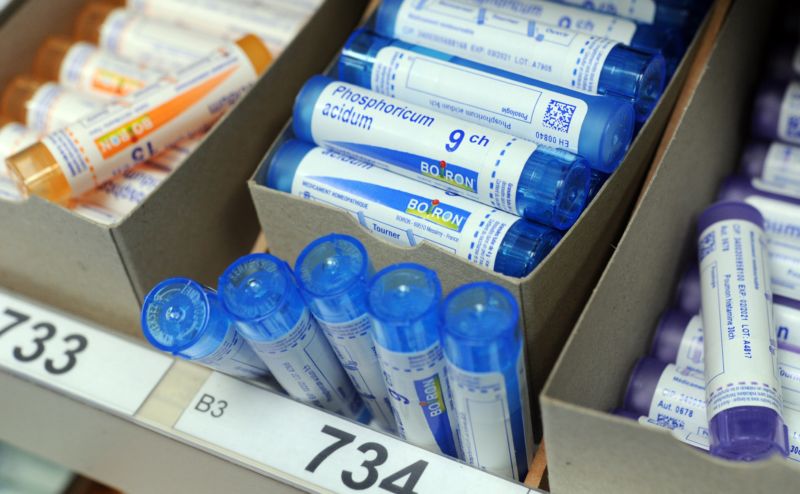
An organization representing scientific academies throughout Europe released a statement Wednesday that squarely bashed homeopathy as nonsense and warned that the “promotion and use of homeopathic products risks significant harms.”
The statement by the European Academies Science Advisory Council (EASAC)—an umbrella organization representing 29 national and international scientific academies in Europe, including the Royal Society (UK) and Royal Swedish Academy of Sciences—is intended to influence policy and regulations across the European Union. The EASAC emphasized the need to “reinforce criticisms” by scientists as the markets for homeopathy in the EU and US continue to grow.
The council did not mince words about the “alternative medicines,” which rely on the erroneous ideas that ‘like cures like’ and that water can have memory. In its 12-page statement, the group summarized the extensive scientific work showing that homeopathy is scientifically implausible and produces nothing more than the placebo effect in patients.“EASAC is publishing this Statement to reinforce and reiterate this extensive and well-founded critique,” it wrote. The EASAC also noted that homeopathic remedies can be dangerous because they may delay patients from getting real medical treatment and undermine patient trust in the medical community when sham treatments fail.
The EASAC made the following recommendations to EU member states: set up regulations to squash false claims and misleading advertisements by homeopaths; cut coverage of homeopathic treatments from public health programs; and require that homeopathic product labels clearly identify ingredients and their amounts.
The EASAC also took a swipe at alternative medicine in general, writing:
There must be parity of assessment in medicine. EASAC agrees that “There cannot be two kinds of medicine—conventional and alternative. There is only medicine that has been adequately tested and medicine that has not... ” (Angell and Kassirer, 1998 [NEJM]).
The statement comes on the heels of continued advances of homeopathy and other alternative treatments in the mainstream. In the EU, homeopathy was a €1 billion industry in 2015 and growing by six percent annually. Some countries have significant chunks of their population buying into the treatments. Up to 13 percent of people in France, Germany, and Austria use homeopathic products, for instance. The same is true for the US, where the market was $3 billion in 2015.
Two medicines
Homeopathy lingers despite high-profile and recent scandals. Last year, the US Food and Drug Administration revealed that improperly diluted homeopathic teething products were linked to hundreds of infant poisonings and 10 deaths due to inconsistent levels of belladonna, aka deadly nightshade. Yet equally high-profile marketing and promotion continues, including on Gwyneth Paltrow’s chic lifestyle site Goop.On Wednesday, Stat reported that the University of California, Irvine, is starting up an “integrative” medicine program called the Susan and Henry Samueli College of Health Sciences. The program will combine conventional and alternative treatments to treat “the whole person.” It’s funded by a $200 million donation from billionaires Susan and Henry Samueli, who champion alternative medicine and homeopathy, specifically.
The UCI doctors heading the program told Stat that they were motivated by the concern that the medical community is slow to adopt new therapies and strategies, including alternatives that show potential for effectiveness. But they emphasized that they would be driven by evidence and would never put patients at risk.Critics were numerous and sharp. Some expressed concern that the move would further legitimize bogus and potentially harmful therapies. Dr. Steven Novella, a neurologist at Yale University, echoed the EASAC’s sentiment in his critique, telling Stat:
You have to ask, what are they integrating? Are they integrating things that don’t work? If it worked, we wouldn’t need to integrate it—it would already be part of the system.
To further combat unproven, implausible, and potentially harmful therapies such as homeopathy, the EASAC urges public discussion about risks and evidence, led by scientists.
In the meantime, the EASAC notes some positive signs, including that some EU countries (such as the UK) have seen reductions in the use of homeopathic products in their national health systems. And last year, the US Federal Trade Commission announced that it would start enforcing tough standards on homeopathic product labels, including making sure that the labels clearly state that there is no scientific evidence that the products work.
reader comments
338